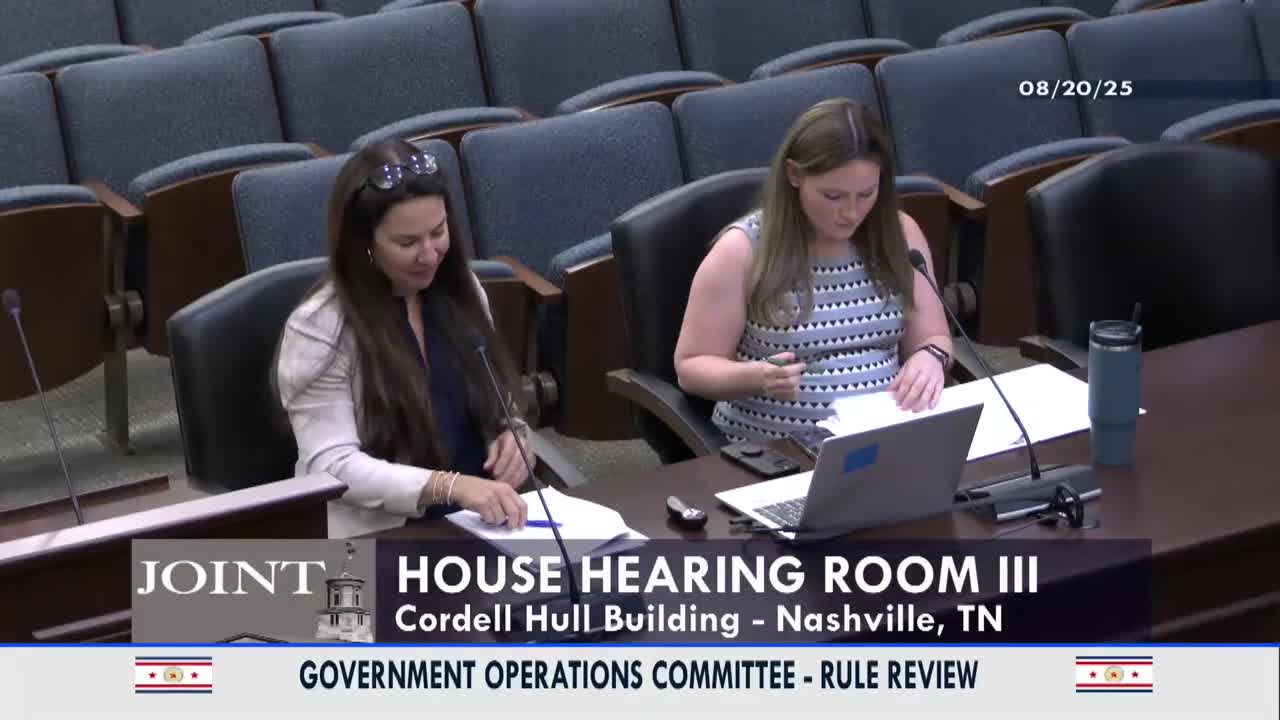Tennessee State Board Reviews Rules for Education Freedom Scholarship Program Implementation
August 21, 2025 | Government Operations - Rule Review, Joint, Committees, Legislative, Tennessee
Thanks to Scribe from Workplace AI , all articles about Tennessee are free for you to enjoy throughout 2025!

This article was created by AI using a video recording of the meeting. It summarizes the key points discussed, but for full details and context, please refer to the video of the full meeting. Link to Full Meeting
The committee reviewed proposed rules designed to implement the EFS program, which focus on defining key terms, establishing eligibility processes, and outlining appeals procedures. However, the discussions revealed a tension between the intent of the legislation and the practical implications of the rules. Some committee members expressed concerns that the rules do not adequately reflect the spirit of the law, particularly regarding the opportunity for students who are not already enrolled in private schools.
One notable point of contention was the absence of a requirement for the Department of Education to collect data on how many scholarship recipients were already attending private schools. Critics argued that this oversight undermines the program's goal of providing educational opportunities to students who would not otherwise have access to private education. The committee learned that the decision to omit this data collection was intentional during the legislative process, leading to further frustration among members who felt it contradicted the governor's assurances about the program's intent.
Additionally, the definition of a private school within the proposed rules raised eyebrows. Concerns were voiced about the vagueness surrounding what constitutes educational services, particularly for virtual schools. The committee noted that without clear definitions, there is potential for misuse of public funds, as private institutions could theoretically offer minimal educational services while still qualifying for state support.
The meeting also touched on the use of funds, with members questioning why there were no restrictions on the types of textbooks and curricula that could be funded with public dollars. This lack of oversight was seen as a significant risk, especially given ongoing debates about the content being taught in schools funded by taxpayer money.
As the committee wrapped up its discussions, the implications of the EFS program became increasingly clear. While the initiative aims to enhance educational choice, the rules governing its implementation may not fully align with the legislative intent. The committee's ongoing scrutiny will be crucial as Tennessee navigates the complexities of school choice and the effective use of public funds in education. The future of the EFS program remains uncertain, with many questions still to be addressed as it moves forward.
Converted from Tennessee Joint Committee - Government Operations- Rule Review Aug 21, 2025 meeting on August 21, 2025
Link to Full Meeting
Comments
View full meeting
This article is based on a recent meeting—watch the full video and explore the complete transcript for deeper insights into the discussion.
View full meeting
